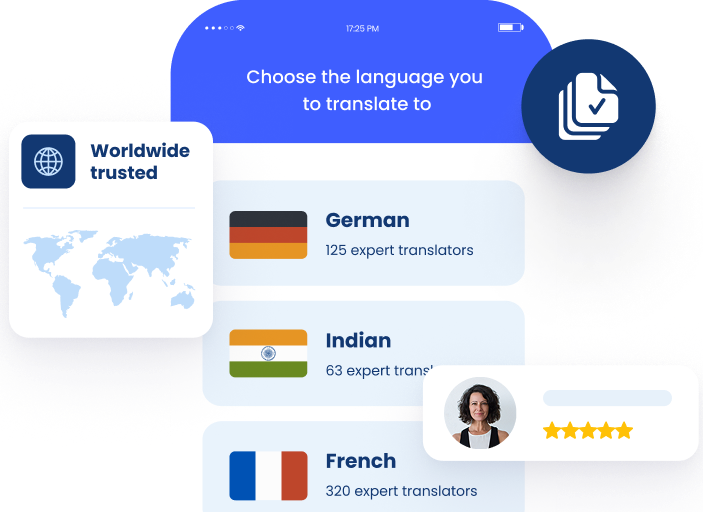Language access is not just useful; it’s necessary when people deal with government institutions like a courthouse, a public hospital, or immigration proceedings. A government-certified interpreter is very important for making sure that officials and the public can understand each other correctly.
These interpreters are more than just someone who can speak two languages well; they are trained professionals who know the rules of law, administration, and ethics. Their work ensures that language never gets in the way of justice, healthcare, or other important public services.

What Interpreters Do in Government and Public Services
Government interpreters work in a variety of places, such as schools, hospitals, courts, police departments, immigration offices, and city councils. Their goal is to give an accurate, neutral interpretation in real time so that nothing gets lost or changed in translation.
A certified interpreter for government agencies doesn’t only translates words; they also explain what they mean and how they sound. Accuracy is particularly important in public sector communication since one word might influence the outcome of a legal lawsuit or medical treatment.
Some important places where public sector interpreter services are needed are:
1. In legal situations, including courtrooms, depositions, and immigration hearings
2. Healthcare: doctor’s visits and visits to the hospital
3. Child welfare, housing help, and public benefits are all social services.
4. School meetings and parent-teacher conferences are examples of education.
5. Law enforcement: talking to people, looking into things, and reaching out to the community
Interpreters help public institutions run more fairly and effectively by making sure that everyone understands what is being said.
(Find out more about on-site support under our on-site interpreting services.)
What Government Interpreters Need to Do to Get Certified
To be a government-certified interpreter, professionals must complete severe requirements. Certification confirms that interpreters have the language abilities, cultural knowledge, and moral judgment needed for formal communication.
The certification process may involve the following, depending on the country or state:
- Testing for language skills in both the source and target languages
- Knowing legal or medical terms
- Training on ethics and privacy
- Tests in writing and speaking
In the United States, interpreters can get certified by taking exams like the Federal Court Interpreter Certification Examination (FCICE) or the Consortium for Language Access in the Courts (CLAC) tests at the state level.
To become an accredited interpreter for public institutions, you also need to keep learning. Interpreters often have to renew their credentials by taking professional development courses and showing that they are up to date on the criteria for public sector communication.
Many interpreters also work with professional translation firms to make sure that all of their document-related certifications meet USCIS and court requirements.
Ethical Standards and Privacy in Public Communication

Government interpreters have to follow tight rules of conduct that safeguard both privacy and impartiality. Every certified professional must follow these basic rules:
Privacy: All information supplied during interpretation stays private and safe.
Accuracy: Interpreters must say everything exactly as it is, without adding, taking away, or changing anything.
Impartiality: No matter what the scenario is or who is involved, they must stay unbiased.
Professional behavior: Interpreters must act in a polite and moral way in all official settings.
These rules of ethics guarantee that interpreters are reliable communication links and not advocates or decision-makers.
(You can also look into our on-demand interpreting plan services for agencies that need interpreters who can work when they need them.)
Why Accuracy Matters in Government Interpretation
One wrong word in a government message might cause a lot of problems, such legal documents being filed incorrectly or medical care or immigration decisions being made wrong. That’s why every professional translator for official communication puts accuracy at the top of their list of priorities.
Certified interpreters employ systematic methods to make sure they are accurate, such as:
– Writing down complicated statements
– Using the same words in specialist fields
– Checking meanings that aren’t clear when they need to be
– Keeping the tone and emotional meaning
Their job isn’t only to translate speech; it’s to make sure that the message stays the same no matter what.
Correct interpretation helps protect people’s legal rights, make things fair, and make sure that everyone, no matter what language they speak, may use public services.
How certified interpreters gain the public's trust
Language affects trust. People feel valued and included when they can talk to government officials clearly. A government-certified interpreter is an important part of creating that confidence.
Interpreters make sure that things are clear and open by:
– Make linkages between communities and institutions stronger
– Stop discrimination because of language limitations
– Help make administrative and legal processes go more smoothly
– Encourage civic participation and inclusion
Also, getting certified as an interpreter for government employment makes people more accountable. This means that only trained professionals are trusted with confidential and important information.

FAQ
- What qualifications are needed to become a certified interpreter for government work?
Interpreters must prove their fluency in both languages and pass oral and written tests. In some cases, legal and medical language tests are required. They are also trained to be ethical and confidential at all times during the process.
- How does a public sector interpreter ensure accuracy and confidentiality?
Certified interpreters work by strict rules set by government entities and included in their certification. These rules include confidentiality, accuracy, and neutrality, among other things.
- What types of government agencies hire certified interpreters?
Everything related to courts, schools, hospitals, police departments, social care agencies, and immigration offices.
- Is there a national certification process for interpreters in government roles?
Yes, there is. The public sector interpreters can get officially accredited through the Federal Court Interpreter Certification Examination (FCICE).
- How do professional interpreters maintain neutrality in official settings?
To stay neutral, they just focus on giving correct facts and do not give their opinion or change the tone. Interpreters are there as a link between two languages, not to participate with personal insights.
Final Thoughts
Government-certified interpreters are not only language experts, but guardians of accuracy and clarity in official communication. The certification they possess guarantees that their interpretation is ethical, precise, and respectful to other cultures.

At The Language Doctors, we specialize in USCIS-certified translations that are trusted and accepted by immigration attorneys, government agencies, and embassies worldwide.
With our service, you can expect fast 24–48 hour turnaround times, certified translations in over 200 languages, and PDF delivery complete with a signed Certificate of Accuracy.
Everything you need to meet USCIS requirements with confidence. We offer affordable flat-rate pricing, so you always know what to expect with no hidden fees.
Get your USCIS translation today. Accurate, certified, and hassle-free.


